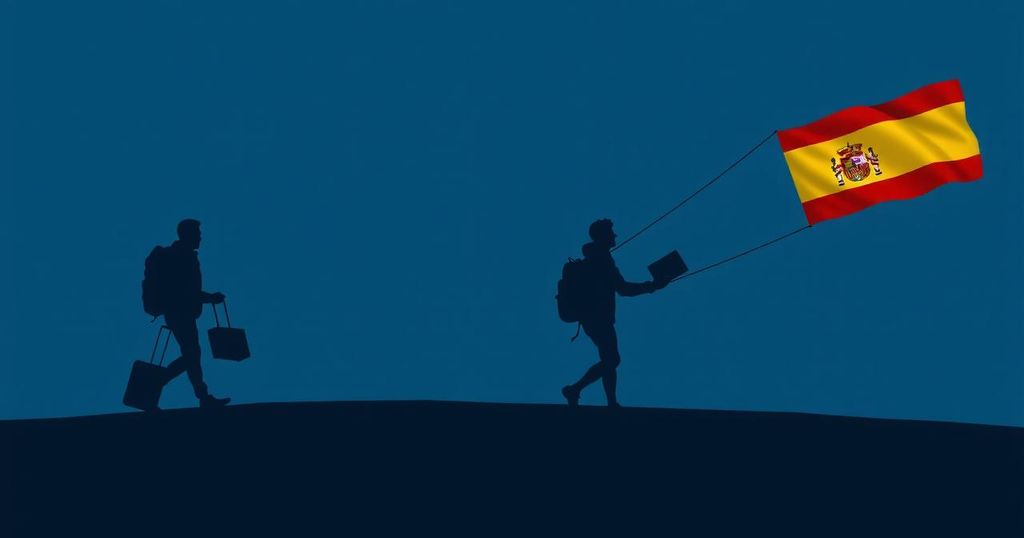Edmundo González Flees to Spain, Seeking Political Asylum Amid Venezuelan Crisis
In a significant political development, Edmundo González, a former presidential candidate representing the Venezuelan opposition, has departed for Spain after being granted political asylum. His exile, which occurred on Sunday, marks a notable setback for the millions who had placed their hopes in his campaign aimed at dismantling over two decades of single-party governance in Venezuela. The announcement of González’s unexpected departure was made by Venezuela’s Vice President, Delcy Rodríguez, who indicated the government’s decision to facilitate his safe exit was aimed at restoring the nation’s political stability—a departure from an earlier order for his arrest.
Upon arrival at a military airport near Madrid, González was accompanied by his wife and officials from Spain. Opposition leader María Corina Machado noted that González faced grave threats to his life, including growing intimidation tactics employed by the Venezuelan regime. She remarked on the severity of the situation that escalated to legal citations and arrest warrants against him, asserting that the regime’s conduct highlighted their relentless efforts to suppress dissent.
Spain’s center-left administration underscored that the decision to leave Venezuela was made solely by González, who utilized a military aircraft provided by Spain for his exit. The Spanish Foreign Minister, José Manuel Albares, confirmed that the government had granted González political asylum as he had specified in his request. He communicated with González while en route to China, assuring the former candidate of Spain’s commitment to supporting the political rights of all Venezuelans. In a prior address, Spanish Prime Minister Pedro Sánchez described González as a hero deserving of Spain’s support.
The exiled leader’s departure elicited remarks from Josep Borrell, the European Union’s foreign affairs chief, who expressed sadness over this development, highlighting González’s legitimacy as the presumed victor of the disputed presidential elections. Borrell reaffirmed the EU’s commitment to supporting the Venezuelan populace in their quest for democratic governance.
Furthermore, Caspar Veldkamp, the Dutch Foreign Affairs Minister, noted in a correspondence to legislators that the Netherlands had also extended refuge to González shortly after the elections. He revealed that González had expressed a desire to leave Venezuela and continue his political activism from Spain.
At 75 years old, González became a prominent figure in the opposition after being a last-minute replacement for Machado, who was barred from contesting. Although incumbent President Nicolás Maduro was declared the winner of the July elections, numerous Western nations—including Spain—have refused to acknowledge his victory while calling for the release of voting data, following reports that opposition-monitored tallies indicated González’s possible win by a significant margin.
The surrounding political landscape remains tumultuous, with the Maduro-aligned Attorney General seeking González’s arrest based on accusations of electoral sabotage. Investigative reports from international bodies, including the United Nations and the Carter Center, have cast doubt on the authenticity of the election results. Nevertheless, González plans to continue his activism from abroad, leveraging support alongside Machado who remains hidden in Venezuela.
The migration of Venezuelans to Spain has seen an uptick, with nearly 44,000 individuals immigrating during the first half of the year. This figure complements the 2022 statistic indicating that approximately 212,000 Venezuelans were residing in Spain. The exodus of prominent opposition figures, such as Leopoldo López and Antonio Ledezma, encapsulates the struggles faced by those opposing Maduro’s regime. Amidst these challenges, exiled opposition politician Franco Casella conveyed a message of unity, urging supporters to remain resolute against the dictatorship despite González’s departure.








Post Comment